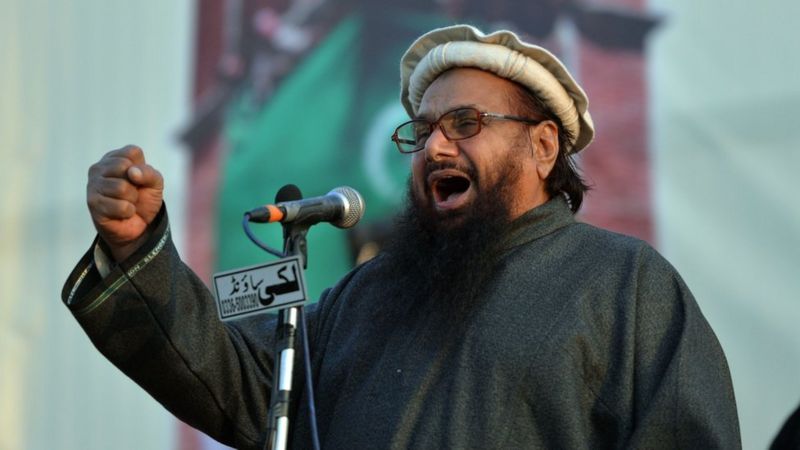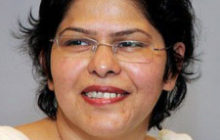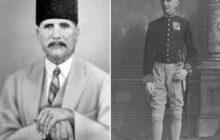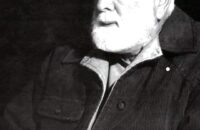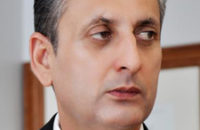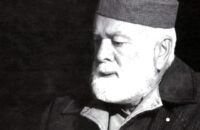Khaled Ahmed
On 19 November 2020, a pivotal development took place in the lives of Pakistanis. An anti-terrorism court sentenced chief of the banned organisation Jamaatud Dawa – erstwhile Lashkar-e-Tayba – Hafiz Saeed, to ten years in jail for “terror financing”. The conviction came as Pakistan tried to avoid blacklisting by the global dirty-money watchdog, the Financial Action Task Force (FATF) which punishes “illicit financing of militant organisations”. In FATF’s October review, Pakistan was urged to complete an internationally agreed action plan by February 2021.
Who was this man who made the world cower in fear when he organized the attack on Mumbai in 2008? A Kashmiri gujjar by background, Hafiz Saeed lived in Simla before partition. After 1947 he grew up in Sargodha where his family began farming. Saeed’s father Maulana Kamaluddin was a religious scholar, so was his uncle Maulana Hafiz Abdullah who later helped in setting up the “terrorist” organization, Lashkar-e-Tayba. More terrorist siblings joined. Abdullah’s sons Abdur Rehman Makki and Abdul Mannan married the sisters of Hafiz Saeed. Makki later became number two in Lashkar-e-Tayba. Hafiz Saeed graduated from Sargodha Government College and later did MA in Arabic and Islamiat from Punjab University.
Religion serves as an agent of detachment from reality. Saeed’s career embodies this phenomenon that has ended up harming Pakistan. After graduation in 1974 Hafiz Saeed was appointed lecturer at the University of Engineering and Technology (UET) Lahore in the Islamiat Department. From here he went for higher studies to Saudi Arabia and became intimate with the infamous Saudi scholar Sheikh Abdul Aziz bin Baz who was to pronounce the fatwa of jihad in Afghanistan in 1979. After Saudi Arabia, Saeed was selected as a research scholar at the Council of Islamic Ideology, a selection made by a panel of High Court judges. He retained his lien with the University of Engineering and Technology, Lahore, whose “graduates” were to commit many crimes in the name of jihad.
Saeed, like most clerics, was against democracy. After the fall of East Pakistan in 1971, and a fatwa of jihad in 1979 by Bin Baz, he turned to the war in Afghanistan, joining the training camp of Abdur Rasul Sayyaf where he linked up with the teacher of Osama bin Laden and Arab fighters, Dr Abdullah Azzam. He also met Osama bin Laden a number of times. In 1986, the teachers of the Islamiat in Engineering University had founded Markaz Dawat wal-Irshad, a Wahhabi organisation devoted to the Saudi brand of Islam and raising armies for the jihad in Afghanistan.
In 1990, Lashkar-e-Tayba was established in consultation with the Wahhabis in Afghanistan who had set up their own government. By 2001, Lashkar was the most well-known jihadi outfit in the region, boasting 1100 martyrs and 15,000 Indian troops killed in Kashmir. Hafiz Saeed claimed that his fighters had also figured in jihad in Bosnia and Chechnya. Back at home, everyone seemed inspired by jihad including the scientists involved in making Pakistan’s nuclear bomb. Dr Abdul Qadeer Khan, the father of Pakistan’s atom bomb, appeared in the rallies of Lashkar-e-Tayba run by Hafiz Saeed.
In 2003, after a career of jihad in Kashmir, the Lashkar was banned. It then became Jamaatud Dawa and devoted itself to serving Al Qaeda as a coordinating agency with pro-Al Qaeda networks in Pakistan. In February 2002, at the high tide of Al Qaeda’s revenge killings inside Pakistan, Osama bin Laden’s lieutenant, Abu Zubaida, was caught in Faisalabad from a safe house of Hafiz Saeed.
Daily The News of April 9, 2016, disclosed that Hafiz Saeed had been doing something unforgivable: running stealth courts in violation of the constitution of Pakistan: “The supra-constitutional Sharia courts, established by Jamaatud Dawa (JuD), operate across the country and only the Lahore court of this parallel judicial system has issued verdicts in 5,550 cases, including murder trials”.
The “courts” had been going on since 1990 and one had been active even in Islamabad! Before any action could be taken by Jamaatud Dawa against the news, Mufti Muhammad Idrees, a kind of stealth high court chief justice sitting in Masjid Qadisiya (the headquarters of JuD in Lahore) spilled all the beans. He claimed that seven Sharia courts had been functional, one each in Lahore, Gujranwala, Bahawalpur, Multan, Karachi, Quetta and Islamabad. Hafiz Saeed is the head of all these courts, which makes him a kind of chief justice of the Supreme Court empowered to appoint judges as head qazi (chief judge). Saeed was also the appellant authority hearing appeals with the power to dismiss decisions made by these subordinate judges. If he let someone off he remained off.
The state had in fact surrendered to Hafiz Saeed and was helpless to oust him from his spiritual-terrorist empire, and preferred to pay him tribute by allowing him to rule over its citizens. The surrender of the state to Hafiz Saeed was a blend of two contingencies: the evolution of the ideology of the state under Islam, and the drive of a revisionist policy vis-à-vis India.

